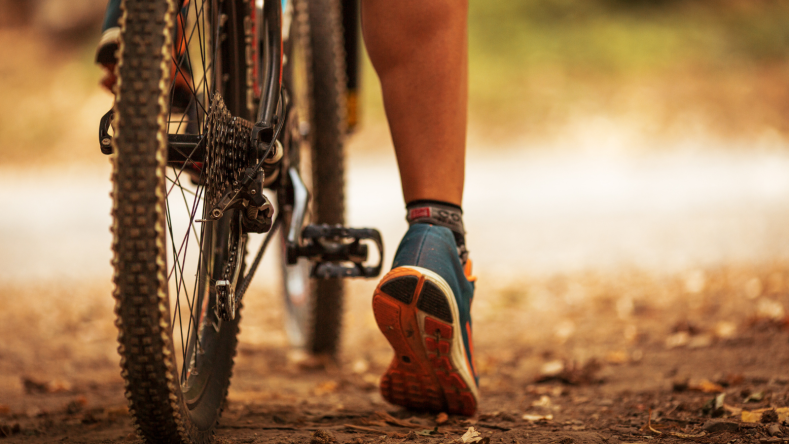Is it better to cycle in the morning or evening?
This question is about Cycling
If you’re wondering if it is better to cycle in the morning or evening, it depends on the goal of your ride. Cycling in the late afternoon/early evening seems to be slightly better for performance, whereas morning rides may be better for weight loss, fat-burning, and appetite control. Of course, if you are balancing time constraints, the best time to cycle is whenever you are able to.
If you’re looking to set a new PR or take your training to the next level, research shows that the afternoon is more favorable for cycling performance, as blood glucose levels and core body temperature are slightly higher [ 1 2 3
Conversely, cortisol and growth hormone are naturally elevated in the morning and the body is primed to draw more energy from fat reserves. These factors may contribute to the improvements in weight loss, appetite control, and fat oxidation observed in various studies [ 4 5, 6
Of course, doing the work is what’s most important in achieving your health and performance goals, so the best time to cycle is whenever you can make time to do it.

People also ask:
References
Atkinson, G., Todd, C., Reilly, T., & Waterhouse, J. (2005). Diurnal variation in cycling performance: influence of warm-up. Journal of sports sciences, 23(3), 321–329.
https://doi.org/10.1080/02640410410001729919
Fernandes, A. L., Lopes-Silva, J. P., Bertuzzi, R., Casarini, D. E., Arita, D. Y., Bishop, D. J., & Lima-Silva, A. E. (2014). Effect of Time of Day on Performance, Hormonal and Metabolic Response during a 1000-M Cycling Time Trial. PLoS ONE, 9(10), e109954.
https://doi.org/10.1371/journal.pone.0109954
Pullinger, S. A., Cocking, S., Robertson, C. M., Tod, D., Doran, D. A., Burniston, J. G., Varamenti, E., & Edwards, B. J. (2019). Time-of-day variation on performance measures in repeated-sprint tests: a systematic review. Chronobiology International, 37(4), 451–468.
https://doi.org/10.1080/07420528.2019.1703732
Willis, E. A., Creasy, S. A., Honas, J. J., Melanson, E. L., & Donnelly, J. E. (2020). The effects of exercise session timing on weight loss and components of energy balance: midwest exercise trial 2. International journal of obesity (2005), 44(1), 114–124.
https://doi.org/10.1038/s41366-019-0409-x
Alizadeh, Z., Younespour, S., Rajabian Tabesh, M., & Haghravan, S. (2017). Comparison between the effect of 6 weeks of morning or evening aerobic exercise on appetite and anthropometric indices: a randomized controlled trial. Clinical obesity, 7(3), 157–165.
https://doi.org/10.1111/cob.12187
Iwayama, K., Kurihara, R., Nabekura, Y., Kawabuchi, R., Park, I., Kobayashi, M., Ogata, H., Kayaba, M., Satoh, M., & Tokuyama, K. (2015). Exercise Increases 24-h Fat Oxidation Only When It Is Performed Before Breakfast. EBioMedicine, 2(12), 2003–2009.
https://doi.org/10.1016/j.ebiom.2015.10.029
